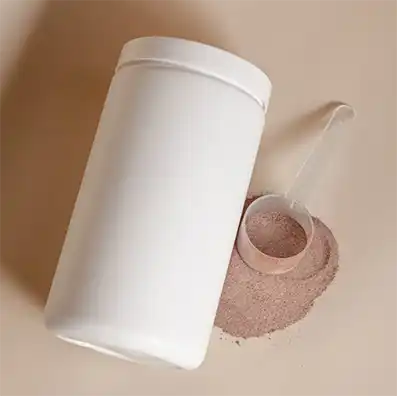One question that kept popping up throughout the entire time I did nutrition and fitness coaching was this – “How much protein do I need?”. In a world where almost every other food is sold in a low-carb or high-protein version, this might be confusing to a lot of people. And to be fair, the official guidelines around nutrition often date from the 1960s and do not provide a lot of help.
So, is there an ideal amount of protein to eat?
The official recommendation
Historically, there has been a belief that too much protein is bad for your body. Nutritionists have been saying that it might even inflict damage on your body if you overeat protein. And while there might be sources of protein that have risks associated with them, such as salmon due to its toxin contamination, the general risk has been debunked. But still the official recommendations for an adult (25-50) are around 2300 calories a day and 0.8 grams of protein per kilogram of weight. This means that the recommended share of protein is around 11% measured of total calories consumed.
There is just one thing to be discussed about this – if you are an athlete, no matter how good you are, there is a high chance that you need more protein (and more calories) to rebuild and recover your muscles. Now of course, there is a long way between the official recommendations and the diet that a lot of fitness nerds are eating. But as a general rule of thumb, an athlete should rather range between 1.4 and 2.0 grams per kg, as mentioned by the International Society for Sports Nutrition. As mentioned in our nutrition main page, I would say it is reasonable to eat between 25% of protein in season (for optimum performance) and 35% in off-season (body composition).
Individual approach – why it is important
Every one of us is individual and so should be our diets. Therefor while this can act as a good orientation or rule of thumb, you shouldn’t just adhere to it religiously while you feel bad. For example, when I started CrossFit I ate around 40% of protein in my diet and my digestive system felt horrible. I was bloated all day, and even if my body was building muscle, I just didn’t feel like a well-functioning human.
Everyone of us can use protein differently and is sensitive to other sources of protein. This is why I strongly encourage you to experiment with different sources of protein (fish, meats, beans, tofu etc) and see which ones work best, while also checking in with your body how it handles your current diet.
If you are sensitive to red meat, it might be better to have 5% less protein in your diet but still check all other boxes of a balanced and healthy lifestyle. There are several options of including protein as a macronutrient into your food, not only through the typical foods from your fitness magazine. But whatever your diet needs are, make sure to refuel your body with a slightly elevated amount of protein, as it has various advantages for your health. Next to increasing muscle mass and strength it also helps to reduce hunger levels, can help to boost your metabolism and can aid in longevity by strengthening your bones and tendons.

Do I need supplements for this?
In short no, in longer fashion – if you follow a balanced diet with included protein sources, there is no need for supplements. However, there are two reasons why a protein supplement might be useful after all. Number one is if you struggle to meet your protein percentage due to specific dietary requirements, such as vegan preference or allergies.
There are a multitude of protein powders out there that range from vegan to vegetarian to carnivore. The other reason could be that you are to busy to eat balanced all the time and want a cheat-code. In either case, make sure that you are using high-quality products and stay away from BCAA or other amino acid supplements.















